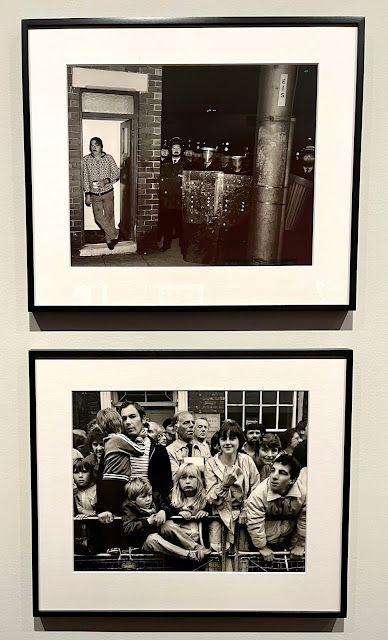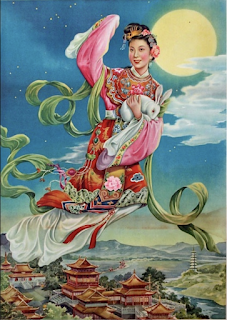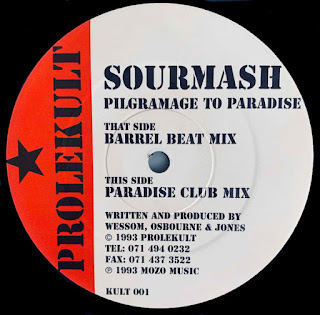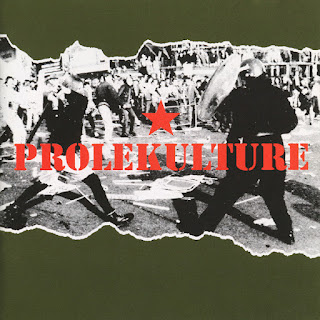 |
| Post lockdown party at 56a in July 2021 to celebrate its 30th birthday |
Wednesday, April 19, 2023
Annotated Archives at 56a Infoshop
Monday, April 03, 2023
The Redskins - revolutionary rock'n'roll?
Friday, March 31, 2023
In defence of Billy Bragg and Trans Rights
Billy Bragg has fluctuated in my estimation over the years. When he first appeared on the scene, singing solo on electric guitar was more or less unknown and he had some great songs. I mean a double A side single of New England and St Swithins Day in 1984... few can top that. Levi Stubbs Tears can still make me cry.
And yes he was on the right (left) side of the all the big battles like the miners strike. My main criticism of him in those days from my anarcho/ultraleft stance was that he was so close to the Labour Party. Must confess I may even have heckled him from this perspective when he played on a National Union of Students demo though he was great live (sorry Billy)! I've never been entirely convinced by his 'progressive patriotism' line of reclaiming icons of English identity from the far right, though I can see that it can sometimes be effective.
 |
| Billy Bragg singing outside the Festival Hall, June 2007 |
Still he has stuck to his guns politically when others have gone quiet, not to mention later nameless indie folk singers influenced by him who must be suspected of being shy Tories given their absence of anything to say. He has played countless benefit gigs for various worthy causes.
Musically he has steered an interesting path for someone from a punk background - I actually have a copy of his 1978 punk single with his band Riff Raff, 'I wanna be a cosmonaut', which I sometimes played as part of my Disconaut Autonomous Astronauts set. He has explored Americana through his interpretations of Woody Guthrie lyrics with Wilco, and English folk music with Imagined Village.
I might add that my partner is from Dagenham and no word can be spoken against him in our house.
But recently my social media timelines have been flooded with accusations about Bragg accusing him of misogyny and being anti-women. The reason for this attention is that he has been an outspoken supporter of trans rights, including changing the words of songs to be trans-inclusive. He now sings his old song 'Sexuality' with the lyrics “And just because you're they, I won't turn you away' instead of 'just because you're gay', explaining 'Times changed. Anyone born since the song was released would wonder why it’s a big deal to find common ground with a gay man. The front line now is trans rights'. Bragg has also been critical of those feminists who oppose trans rights along with their far right allies. But if Bragg is a misogynist then so presumably are the Feminist Library, Sisters Uncut, Gal-Dem etc. and many other feminist projects - not to mention most left wing/anarcho/radical folks under the age of 35.
I think Bragg is braver than most because he actually stands to lose some of his livelihood for speaking out. I hate the lazy political stereotyping of generations, but I do feel there is a generational aspect at play here. The trans exclusionary position does seem to be particularly concentrated among British lefties of a certain age. I would estimate that the majority of people I know who were involved in radical politics in the 1980s have this as a default setting. This is precisely the constituency who are Bragg's natural fan base and it would be very easy for him to just serve them up 'what did you do in the strike?' platitudes rather than challenge their current day prejudices.
And I don't feel that prejudice is too strong a word. For me the issue does come down to the simple one of 'Some people are trans, get over it'. We can debate biology, gender and ideology until the cows come home, but it is a fact that some people really do experience gender dysphoria and that their lives can be made better by having their gender identity recognised. It seems needlessly cruel to deny this, or to portray those in this position as some terrible threat. Of course that's a simple version of the argument and there's much more that I could say, but that has to be the starting point.
There are some comparisons here with what happened when the Gay Liberation Front and similar groups erupted in the 1970s. Then too there were plenty of older (and some younger) leftists who found this threatening and denounced them, didn't they know that homosexuality would disappear under socialism and anyway wasn't all this a diversion from the class struggle? (see for instance this Gay Left article on the experience in the International Socialists). Let's just say that history has not been kind...
I know change and challenges to accepted ideas are uncomfortable. I would just urge people to pause and sit with this discomfort for a while rather than make knee jerk responses to something they mostly don't know much about. Read some books, listen to some trans people. People also need to look around at the company they are keeping. Globally the anti-trans movement is being driven by the far right who are also coming for abortion rights and LGBTQ+ people generally. As someone once said 'If you board the wrong train, it is no use running along the corridor in the other direction' (attributed to Dietrich Bonhoeffer). Wouldn't you rather be heading along the A13 with Billy Bragg?
[sometimes it's a lonely and painful path when you feel so many of your friends have taken a wrong turn. Anyone for a support group for 'Boomers and Gen Xers for trans rights'?]
by Neil Transpontine, written on transgender day of visibility 2023
(had some positive responses to this post including one friend saying 'I think us boomers / gen x for trans rights ARE the majority - it’s just the usual crap about those shouting loudest')
Update 31 March 2024
Nothing much has changed, though I've noticed a few left anti-trans people nervously trying to distance themselves from the openly far right associations of some of the people they previously defended (but see Bonhoeffer quote above). A 'wait, are we the baddies?' moment can't come too soon, but I don't think it's good enough. The most sustained anti-fascist movement in London in the past 12 months was at the Honor Oak pub in South London from February to August 2023 where for six months people turned up to oppose openly far right protestors targeting a drag storytelling event. The anti-fascist effort was led by trans/queer activists - see 'South London Loves Trans People' banner below. Being an anti-fascist today means standing alongside and in solidarity with trans people.
For more on the Honor Oak movement, see my article in Datacide magazine: Defending Drag - South London is Still Anti-Fascist
Friday, February 24, 2023
Police raid South London Squat Gigs, 1991
 |
| Notice for Hell Haus/Hellhouse gig - I believe from SHIP Network News |
 |
Flyer for the Peckham Midland Bank free party - 'live bands, music, friendly peoples', guess the police didn't get the memo. |
Saturday, February 18, 2023
One Becomes Two: Badiou vs Spice Girls
The Spice Girls' pop ballad '2 Become 1' was the UK Christmas number one single in 1996. I loved it at the time for its melody, its video, and (working as I was in HIV at the time) its subtle safer sex use a condom message ('Be a little bit wiser baby, Put it on, put it on'). According to Spice Girl Emma Bunton they also changed the album version lyric of 'Boys and girls feel good together' to 'Love will bring us back together' to be inclusive of their LGBT audience.
The main sentiment of the song though is a familiar one in pop music: 'tonight is the night when two become one', through sex the lovers are united into a single entity.
Wednesday, February 08, 2023
Cinzia Says...
'Cinzia says...' at Goldsmiths Centre for Contemporary Art is a retrospective of the work of Italian fashion designer and artist Cinzia Ruggeri (1942-2019). It features many examples of her 1980s clothing ranges, very much of the time with their playful postmodernist aesthetic, as well as some of her art and video works. She collaborated with Gianni Emilo Simonetti, sometime Fluxus and Situationist associate, and with Italian pop band Matia Bazar among others.
The exhibition in New Cross, London SE14 closes on 12 February 2023
Monday, January 30, 2023
Chris Killip (1946-2020): photos of punks, pits and more
Sunday, January 22, 2023
And the Rabbit's Name Was...
Chinese New Year on 22 January 2023 marked the start of the Year of the Rabbit, reminding me of the Chinese legend of there being a rabbit on the moon. Actually there seems to have been folklore about a lunar rabbit or hare in various parts of the world, prompted by the shapes to be seen from earth on the moon's surface.
The basics of the Chinese legend were relayed to the crew of Apollo 11 in July 1969 as they prepared for the first human moon landing. Reporting a press story, somebody at NASA mission control in Houston told them:
'Among the large headlines concerning Apollo this morning, is one asking that you watch for a lovely girl with a big rabbit. An ancient legend says a beautiful Chinese girl called Chang-E has been living there for 4,000 years. It seems she was banished to the Moon because she stole the pill of immortality from her husband. You might also look for her companion, a large Chinese rabbit, who is easy to spot since he is always standing on his hind feet in the shade of a cinnamon tree. The name of the rabbit is not reported'.
The connection with space programmes doesn't end there. China's own lunar space programme is named after Change'e, and its first lunar rover Yutu which langed in 2013 is named after the jade rabbit.
Tuesday, January 17, 2023
Prolekult - Marx, Debord, Crass and more...
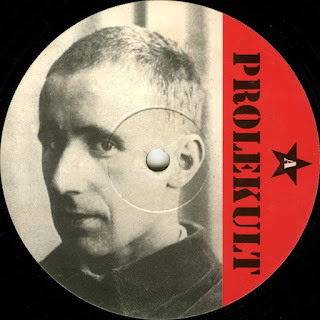 |
| Bertolt Brecht |
 |
| Che Guevera |
 |
| Lenin |
 |
| Andreas Baader of the Red Army Fraction |
 |
| Wasn't sure of who this was - but reliably informed on twitter that its Russian revolutionary artists Mayakovsky, Malyutin and Cheremnykh in 1919 |
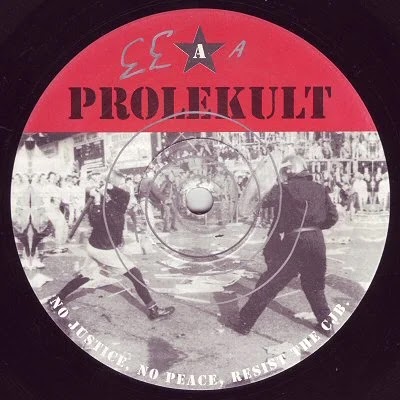 |
| 'No Justice, No Peace, Resist the CJB' (Criminal Justice Bill) - image from 1990 Poll Tax Riot |
 |
| Rosa Luxemburg |
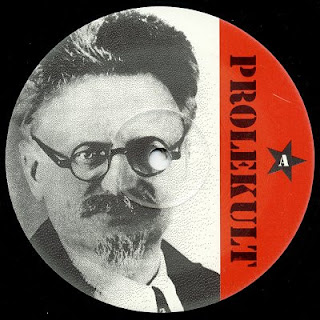 |
| Leon Trotksy |
 |
| Helen Steele and Dave Morris - the much spied upon McLibel Two |
 |
| Huey P. Newton of the Black Panther Party |
 |
| 'Welcome to the future: let me breathe' |
 |
| Malcolm X |
 |
| Mexico Olympics 1968 |
 |
| Stephen Lawrence |
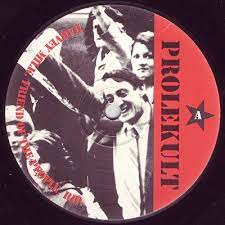 |
| Harvey Milk |
 |
| Aung San Suu Kyi |
 | ||
The Clash
|
 |
| 'Chairman Gonzalo' of the Shining Path in prison in Peru |
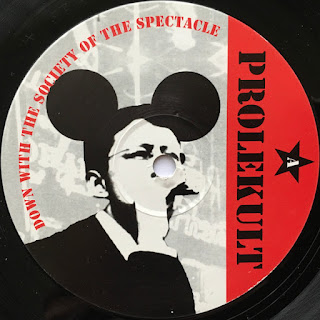 |
| Guy Debord - Down with the Society of the Spectacle |
 |
| Tony Blair and John Major - Zero Difference |
 |
| Paris 1968 |
 |
| Anarchist clash with police in Barcelona, before or during the Spanish Revolution (thanks to @semicoda for spotting) |
 |
| Situationist Rene Riesel - confirmed by @andrew_wilson_a on twitter |
 |
| Keith Narey, Bradford Socialist - featured on 1997 release Vuture Shoque by Logique (Kult 23). I had some difficulty identifying him, but @casperpottle on twitter recognised the photo from his local pub, The Brewery Tap in Bradford. He seems to have been a larger than life figure well known in the Campaign for Real Ale as well as Militant who sadly died celebrating Labour's victory in the 1997 general election. |
Prolekult was a sub label of Hooj Choons founded by Alex Simons and Red Jerry (Jeremy Dickens) in 1990. They put out a lot of big house tunes, notably Felix's "Don't You Want Me" (1992) co-produced by Red Jerry and Rollo. The thinking behind the Prolekult label, and the labels, is set out in the booklet accompanying the 1997 Prolekulture compilation:
Sourmash's Pilgrimage To Paradise was a good tune to kick it all off with, emanating as it did from the UK, but packing the punch of a Beltram / F. De Wulf / Orlando Voorn record. Getting off to a start like that, we'd hoped to overcome our sense of musical Europhilia and carry on signing banging home-grown material, but it wasn't to be. Of the twelve tracks included here [on the CD], three quarters were licensed from European labels, reflecting the failure on our part to consistently find the kind of material we were after here in the UK. We're not sure what that says about us, or the UK, or both ...or neither, but we like the vibe surrounding the very up-for-it free party scene that's developed over the past few years and the producers that are now emerging from this sector of the underground are kicking arse. Proper UK acid business.
When it came to adopting a name, logo, etc, for the label, as unreconstructed lefties, we turned to socialist political history for inspiration. "Prolekult" is an adaptation of the Russian word "Proletkult" which was a workers cultural organisation set up in 1907 by the socialist exiles Alexander Bogdanov and Maxim Gorky. The theory went, in simple terms, that at a time when Russia's Tsarist dynasty was at the weakest and most vicious stage in its squalid history, the Bolshevik party was to lead the political opposition, the unions to lead the economic opposition and the Proletkult the cultural opposition. Perhaps the best known work to come out of the Proletkult was the post-revolutionary films of Eisenstein (Strike, Battleship Potemkin), but within a year of his rise to power in 1921 Stalin had effectively stripped the Proletkult of any autonomy, vibrancy or relevance, turning it, as he did all other genuine bases of working class expression, into just another instrument of state power.
Obviously, none of this has much direct relevance to the records we put out as the lack of vocals involved makes overt political statement difficult ("you gotta have house" repeated a few times on Neurodancers' Wippenburg [sic] - the only vocal on the twelve tracks - isn't exactly "Blowing in the Wind" is it?) but it made a change from the cod-futurism to be found on the sleeves and logos of so many techno/trance labels and, in terms of lefty icons over the last two hundred years, we knew we had an extensive reserve of imagery to draw upon. There was also the quiet hope on our part that by using pictures of long-forgotten working class heroes we'd be making our own tiny contribution to the rehabilitation of these political giants who have effectively been written out of our history. We thought that even if the odd person here and there asked "who's that?" then the labels and imagery would have transcended their original role as mere packaging and taken on a higher role as potential consciousness-raisers (man). Unfortunately it soon became apparent that no one gave a toss about which old trot we wheeled out next and after three years and seventeen releases I can safely say that we could put Donald Duck on our next release and no one would bat an eyelid...
(if you search prolekult you can listen to all this on soundcloud, spotify and all the usual places)
















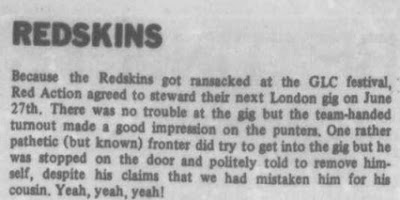

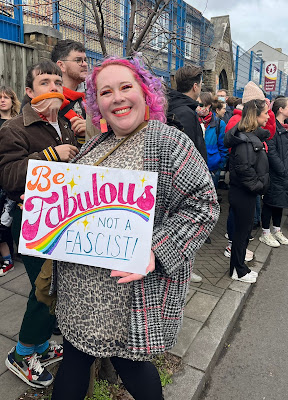
.JPG)



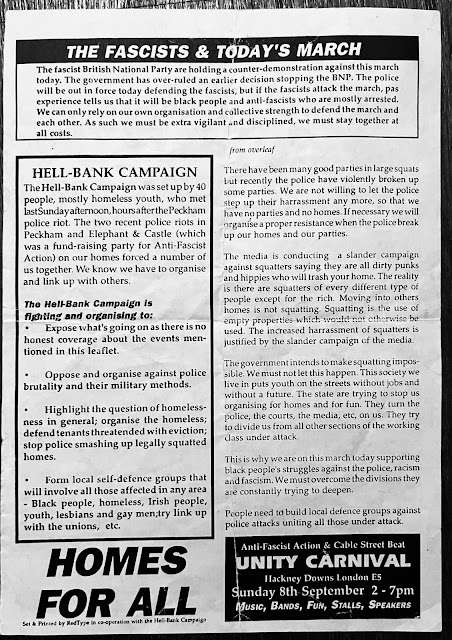



.jpeg)
.jpeg)


